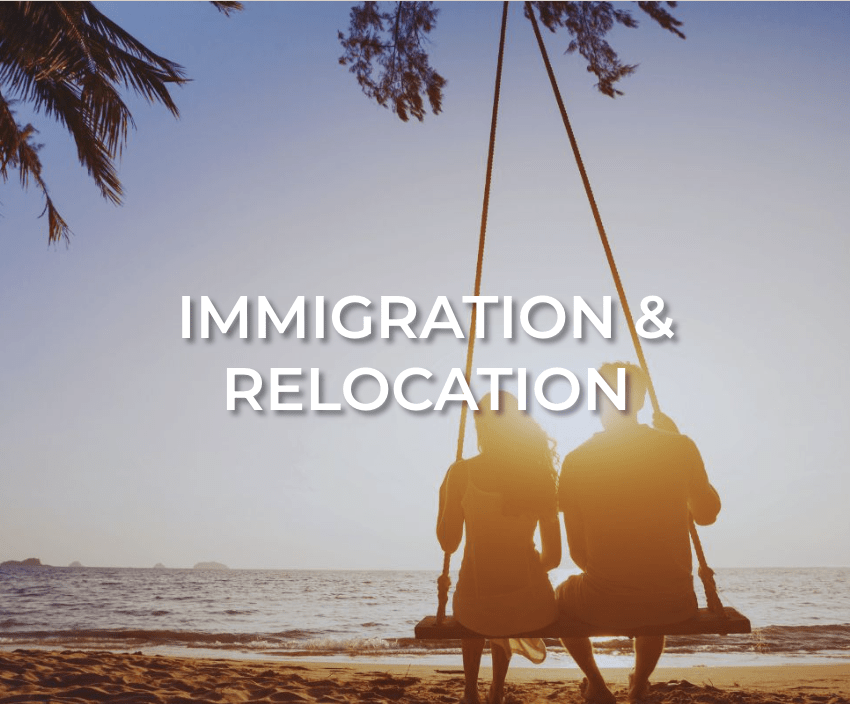

Estate Planning in Costa Rica: A Guide for Foreign Investors and Property Owners
by Quatro Legal Corporate Team | May. 25, 2024 | Corporate

Estate Planning in Costa Rica: A Guide for Foreign Investors and Property Owners
Costa Rica is a popular destination not only for tourists but also for foreign investors, retirees, and business owners. Whether you are buying real estate, starting a business, or planning to retire here, it is crucial to consider your long-term legacy. Estate planning is essential to protect your assets and ensure that your wishes are carried out in the event of death or incapacity.
In this blog post, we will explore the basics of estate planning in Costa Rica, who needs it, and the most common legal tools used to manage assets effectively.
What Is Estate Planning?
Estate planning refers to the process of organizing your affairs so that your assets are managed and distributed according to your wishes after your death, or if you become legally incapacitated. This includes properties, bank accounts, shares in companies, and any other investments you may hold in Costa Rica.
Why Estate Planning Matters in Costa Rica
Costa Rica has its own legal system, based on civil law. If you don’t have a valid estate plan in place and your next of kin cannot peacefully agree on how to proceed, your Costa Rican assets will be subject to the country’s intestate succession laws. This can result in long, costly probate processes and potentially unintended heirs.
In cases where the deceased has not left explicit instructions regarding the disposition of their assets, Article 572 of the Civil Code clearly establishes the six levels of succession that apply. Succession progresses to the next level only if there are no surviving relatives in the preceding group:
Level – Who inherits?
1st – The children, parents, and the spouse or common-law partner of the deceased.
Assets acquired during the marriage are considered jointly owned under Costa Rican law. This means the surviving spouse is automatically entitled to 50% of those assets. The remaining 50% is then distributed among the heirs listed in this first-level category.
2nd – Grandparents, great-grandparents, or any other living ascendants
3rd – Siblings of the deceased
4th – Nieces and nephews of the deceased
5th – Uncles and aunts of the deceased
6th – The Costa Rican State inherits through the local education boards
For foreigners, estate planning is particularly important to ensure your local and international assets are aligned under a unified strategy and to avoid legal complications for your heirs.
Common Estate Planning Tools in Costa Rica
There are several legal mechanisms you can use to manage and transfer your estate in Costa Rica. The right approach will depend on your personal and financial situation:
• Will: A simple will is a legal document in which the testator specifies how their assets will be distributed after their death.
• Testamentary trust: This estate planning model allows the testator’s assets to be transferred to a previously established trust upon their death, as outlined in the will.
• Living Trust: Unlike other models, this option involves transferring assets to a trust during the testator’s lifetime, ensuring that upon their death, the assets pass directly to the beneficiaries without the need for a probate process.
Considerations to Take Into Account When Estate Planning
• Double taxation: Costa Rica does not tax inheritance, but your home country might.
• Trusts and reporting: Some trusts may need to be reported to your home tax authority.
• Probate: Assets in Costa Rica may require separate probate unless held through a trust or corporate structure.
The Probate Process in Costa Rica
When a person passes away with assets in Costa Rica, their estate must go through a probate process to transfer ownership to the rightful heirs. There are two main types of probate proceedings: judicial and notarial.
1. Judicial Probate Process (Proceso Sucesorio Judicial)
This is the standard procedure, especially when:
• There is no will
• There are disputes among heirs
• Minors are involved
Key Steps:
• A court petition is filed by an heir or interested party
• The judge appoints a judicial representative (usually one of the heirs) to oversee the estate
• Creditors are notified and given time to present claims
• Assets are inventoried and appraised
• Once debts are settled, the court authorizes the distribution of assets to the heirs according to the will or intestate succession laws
• The final resolution is registered, and assets are formally transferred
Duration: Can take 1–3 years or more, depending on complexity, disputes, and court backlog.
2. Notarial Probate Process (Proceso Sucesorio Notarial)
A simplified, faster alternative is allowed only when:
• There is a valid will and/or all heirs are adults and in full agreement
• There are no disputes
• There are no minors involved
The Notarial Probate is handled by a Costa Rican Notary Public, who has the authority to act as a judge.
Key Steps:
• The notary drafts and signs the probate deed with the heirs
• An inventory of assets is prepared
• Debts are paid or acknowledged
• Heirs sign off on the asset distribution
• The Notary authorizes the transfer of ownership
Duration: Typically 3–6 months, much faster than the judicial route.
Steps to Start Your Estate Plan in Costa Rica
• Inventory your assets: List all properties, investments, and businesses
• Draft or update your will: Quatro Legal will assist in drafting a valid will that reflects your wishes, protects your heirs, and ensures full compliance with Costa Rican law
• Consider a trust or company structure: Depending on the complexity of your estate, Quatro Legal will evaluate your situation and recommend the most effective legal structure to protect your assets and ensure a smooth transfer to your heirs
• Keep your plan up to date: Quatro Legal provides ongoing support to ensure your documents remain current, valid, and enforceable, especially after major life events like marriage, divorce, or the purchase of new assets
Estate planning in Costa Rica is not just a formality—it’s a crucial step in protecting your investments, minimizing legal risks, and ensuring your loved ones are taken care of according to your wishes. Whether you own property, operate a business, or are planning to retire in Costa Rica, having a well-structured estate plan provides peace of mind and long-term security.
At Quatro Legal, we specialize in helping foreign investors and property owners navigate the complexities of Costa Rican law. From drafting wills and setting up trusts to advising on corporate structures and cross-border compliance, our team is here to guide you every step of the way.
If you found this blog helpful, you may also enjoy:
• Estate Planning in Costa Rica: The Will
• Estate Planning in Costa Rica: The Testamentary Trust
• Estate Planning in Costa Rica: The Living Trust
Click here for a courtesy call ![]()
Disclaimer: The information provided in this blog post is for general informational purposes only and is not intended to constitute legal advice. While we strive to ensure the accuracy and timeliness of the content, laws and regulations are subject to change. For the most accurate and up-to-date information, please contact our office directly. Some images may be AI generated.
Get To Know Quatro Legal

We’re bringing empathy and excellence back to legal counseling. Quatro Legal is built on a bedrock of kindness, a passion for service, and a commitment to guiding you through your legal challenges with ease.
OUR SERVICES
EXPLORE BY
category
REAL
ESTATE
CORPORATE
COSTA RICA
LIFESTYLE
LABOR & EMPLOYMENT
CLIENT
TESTIMONIALS
FREE TRADE
REGIME
All Rights Reserved 2024 | Privacy










